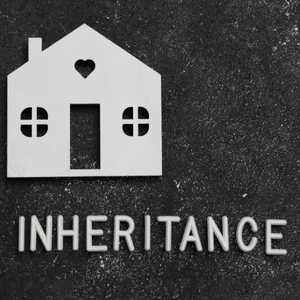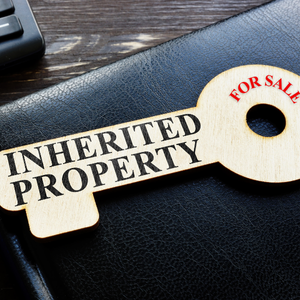
Selling an inherited house in Decatur, Alabama, can be complicated, especially tax-wise. Understanding local tax laws is crucial for effective sales and maximizing returns. From capital gains to estate taxes, this guide covers everything. This helps inheritors understand tax processes and make well-informed decisions. Explore strategies to help you manage your property and optimize your taxes. North Alabama House Buyer can help simplify the process and ensure a smooth sale.
Brief Overview
Understanding financial and legal issues is crucial when selling an inherited house in Decatur, Alabama, for taxes. To help sellers maximize profits, this expert guide covers capital gains, estate taxes, and probate. By consulting professionals, exploring tax strategies, and assessing federal and local implications, sellers can work with cash home buyers in Decatur and nearby cities to simplify the selling process. Managing inherited property sales requires staying informed and prepared.
Key Highlights
- Understanding Alabama’s inheritance tax laws is crucial for managing property transfers efficiently.
- The role of real estate in inheritance significantly affects estate planning and tax implications.
- Before selling, assess the property’s conditions and legal obligations to enhance its market appeal and ensure compliance.
- Capital gains tax on inherited property sales can be reduced using the step-up in basis rule.
- Proper timing and legal advice optimize financial outcomes in inherited house sales.
Knowledge of Alabama Inherited Property
Alabama inherits unique challenges and opportunities. Understand inherited property and how an estate affects inheritance. If you’re unfamiliar with Alabama’s inheritance, estate, and probate laws, it can be overwhelming. This section discusses inherited properties and real estate. It focuses on maximizing home value. Prepare to study the legal and practical aspects of managing inherited real estate in this region.
What is inherited property?
In Alabama, inherited property includes real estate, land, homes, and other structures, which may have tax and estate planning consequences. The property may also require maintenance, mortgages, and liens.
Inherited property may also have federal estate taxes applied, depending on its value, while Alabama has no inheritance tax, which may provide some relief. Having the property may require selling, managing, or investing in it, which includes understanding and dealing with property taxes and probate processes.
Heirs must understand Alabama property laws and property taxes to determine whether it is best to sell, rent, or keep the property. Having the right estate law knowledge ensures that whichever estate management decisions are made will be complied with, the estate will be managed, and it will be financially secured.
Important Factors in Alabama Inherited Property Management
- Assess the Property’s Physical Condition: Conduct a thorough inspection to identify any necessary repairs or renovations that can enhance its value.
- Evaluate Financial Liabilities: Review mortgages, liens, and debts to determine financial obligations.
- Research Market Value: To assess property potential for sale or rental, taking into account location and demand.
- Assess Legal Obligations: Identify and address inheritance taxes, property-related dues, and other legal obligations related to property inheritance.
- Consult Professionals: To understand legal and financial aspects, consult a real estate attorney or financial advisor.
- Develop a Property Plan: Plan the property based on financial goals and potential, deciding whether to keep, sell, or lease it.
- Ensure Legal Compliance: All actions follow local property and estate laws to avoid complications.
You can manage inherited property in Alabama and make informed decisions by following this practical checklist.
The Role of Real Estate in Inheritance

Real estate often dominates inheritances, affecting estate planning and wealth transfer. Although Alabama has no inheritance tax, property values can affect federal estate taxes if the estate exceeds federal thresholds. Effectively managing inherited real estate requires understanding these tax implications.
To transfer real estate to heirs, probate is essential. It helps heirs access and manage their property by legally transferring titles according to the will or state intestacy laws. Knowing Alabama’s probate procedures helps heirs navigate potential complexities and comply with laws.
Beyond legal and tax issues, inherited real estate requires practical decisions like keeping, renting, or selling. Each option affects property taxes, maintenance, and capital gains. Recalling these duties helps heirs weigh financial goals against emotional attachment to inherited property.
Preparing to Sell Your Inherited Property
Selling an inherited property in Decatur, Alabama, requires knowledge of the legal process. Before selling, this section will cover the essential steps to a smooth process and a thorough understanding of Alabama probate laws. Preparation helps you navigate these complexities while maximizing the property’s market value and complying with laws. For personalized guidance, reach out to North Alabama House Buyer to get expert assistance with your inherited property sale.
Steps to Take Before Selling an Inherited House
Step 1: Property Assessment
Evaluate the condition of the home and determine what needs to be repaired or improved. Candidate structural, electrical, and plumbing issues can be found by hiring a licensed home inspector. Improvements of this sort may increase a property’s value and the offers received.
Step 2: Appraise and Price Home
Obtaining an accurate appraisal will allow the property to be fairly priced. A real estate agent familiar with the Decatur market will be able to assist with pricing, advise on staging to enhance the overall presentation of the home, and assist with the showings.
Step 3: Handle Legal and tax issues
Title clearing, lien removal, and gathering of the will, death certificate, and probate papers must be done. A tax expert should be consulted regarding federal estate, capital gains tax, and probate.
Understanding the Probate Process in Alabama
In Alabama, selling an inherited home first requires completing probate to transfer title and ownership to the heirs. The probate court in the county of the deceased receives a petition to either validate the will or establish intestate heirs.
If the petition is accepted, the court assigns a personal representative, who may be an executor of the will or an administrator if there is no will. This representative carries out the functions of estate administration as prescribed by Alabama probate laws, which include settling debts, distributing residual assets, and addressing disputes among heirs.
It is important to note that the representative will require court approval to sell any property while the estate is in probate. Alabama probate attorneys can assist with the required documentation and expedite the process. Understanding the timeline and legal requirements ahead of time allows for a smoother sale while protecting the heirs and enabling proper estate management after probate.
Financial Implications of Selling Inherited Property
The sale of inherited property in Decatur, Alabama, can be financially complicated. These financial implications must be understood to avoid surprises and maximize the inherited property’s value. Manage property taxes and other costs and assess gains tax from the property’s sale. Deeply understanding these financial topics can help you achieve your financial goals while adhering to Alabama’s legal and tax requirements.
Managing Property Taxes and Property Costs
Decatur inherited property needs property taxation management, especially when determining who pays taxes throughout the selling process. After inheritance, property reassessment for fair taxation and cost reductions while selling is performed.
Mortgages, repairs, and maintenance not only entail further costs. Having the property checked and updated, and minor repairs or cleaning done in the house, will maximize the selling cost. Planning becomes even more crucial, as costs will be incurred and must be retrieved from profits upon selling the property.
Finances may also be affected by legal and estate issues. Alabama does not have inheritance taxes, but estates exceeding a value threshold may be liable for federal taxes. Assets in probate and encumbered property will generate legal fees. With the help of a tax or legal professional, you will be able to use exemptions effectively, reduce costs, and facilitate a profitable sale while minimizing time and effort.
Inheritance property sale gains tax

Inherited property has specific capital gains taxation rules that come into play. The step-up in basis rule allows for a higher basis to be claimed when calculating capital gains since it considers the market value of the property on the date of the decedent’s death.
Fixed capital gains are calculated as the selling price of the property less the stepped-up basis. The sale will be subject to capital gains tax when the selling price exceeds the determined basis, depending on income level, as well as short-term or long-term gain tax. This provides clarity for financial planning before the sale.
The timelines for the sale of the property can be optimized to take advantage of tax exemptions or stipulations. Very high-value estates will be subject to the federal estate tax. Selling inherited property reasonably facilitates tax compliance while maximizing gains.
Legal Aspects of Selling Inherited Property in Alabama
Selling an Alabama inherited home is complicated due to legal issues. Knowing the law is crucial to a smooth transaction, state compliance, and estate value. Important factors include real estate laws and sale documents. By understanding these legal aspects, sellers can reduce risks and maximize their property’s market potential.
| Legal Consideration | Documents Required | Purpose/Importance |
|---|---|---|
| Probate Laws | Probate Documents | Ensure legal authority to sell the property |
| Clear Title | Title Insurance Policy, Deed | Confirm ownership and transfer title without issues |
| Lien Considerations | Disclosure Statements | Identify and resolve any liens before the sale |
| Compliance Obligations | Purchase and Sale Agreement | Protect both buyer and seller during the transaction |
This table highlights the critical legal considerations and necessary documents involved in selling inherited property in Alabama, ensuring a smooth and compliant transaction.
Key Legal Considerations for Real Estate in Alabama
You must know Alabama’s real estate laws to sell inherited property legally. Knowledge of these laws prevents disputes, clarifies ownership, and streamlines sales.
As they validate wills and establish intestate heirs, probate laws are crucial. Legal representation ensures seller compliance with state laws during probate, which often requires court approval. Encumbrances like liens and mortgages must be cleared to clear the title, so early title review helps.
Other important issues are property taxes and disclosure. Property taxes must be paid before the sale in Alabama, which has no inheritance tax. The seller must also disclose material defects to the buyer. Managing these legal and financial requirements ensures a smooth, secure, and efficient inherited property sale.
Essential Documents Required for Selling
Selling an inherited Alabama home requires careful legal documentation. To avoid disputes, all heirs must sign the deed, which legally transfers property ownership from the decedent’s estate to them.
Also needed are title insurance and probate documents. Title insurance protects buyers and lenders from defects, while probate documents, such as letters testamentary or administration, authorize the executor or administrator to sell the property and prove legality.
Purchase and sale agreements, which outline terms, price, and conditions, and disclosure statements required by Alabama law to inform buyers of known defects, are also important. Properly managing these documents ensures a smooth and legal transaction, as well as seller protection.
Taxes on Selling an Alabama Inherited Home
Understand the financial implications of selling an inherited house in Alabama due to complex tax regulations. The sale of such a property may incur estate, federal, and capital gains taxes. These tax considerations must be understood in relation to inherited assets. We’ll explain how calculating taxes when selling your home can affect financial outcomes and share strategies to minimize tax liabilities and maximize property value.
Home Selling Tax Calculation

When selling an inherited house in Alabama, the “step-up in basis” is important. Heirs can reset the home’s taxable value to its market value at the previous owner’s death, reducing capital gains from the original purchase price. Your total tax liability may decrease significantly.
Property sold for more than its stepped-up basis incurs capital gains tax. There is no capital gains tax in Alabama, but federal taxes depend on income and sale timing. Preparing for the sale can reduce federal taxes and boost profits.
Also, estate taxes may affect the sale. Although Alabama has no estate tax, federal estate taxes may apply if the estate exceeds the exemption limits. Your tax advisor can help you find deductions, exemptions, and other ways to lower your taxes. Planning helps heirs minimize taxes and maximize home proceeds.
Selling an inherited house in Decatur, Alabama, involves careful attention to taxes, probate, legal obligations, and property management. By following this guide and consulting with professionals, heirs can plan strategically to maximize profits, minimize tax liabilities, and complete the sale efficiently. Whether choosing a traditional sale or working with cash buyers in Alabama and in surrounding cities, preparation and knowledge are the keys to a successful transaction.
Maximize your profits, minimize taxes, and avoid costly repairs. North Alabama House Buyer offers fair cash offers, handles all paperwork, and guides you through probate and tax considerations for a smooth sale. Call us at (256) 824-9181 or fill out our quick contact form today for a no-obligation offer!
FAQs
Are there tax implications for selling an inherited Decatur, Alabama, house?
Selling an inherited Decatur home may incur federal capital gains and estate taxes. The absence of an inheritance tax in Alabama may reduce local taxes. Professional tax advice ensures compliance and maximizes profits.
How does the basis step-up affect taxes?
Step-up in basis resets the inherited property’s taxable value to its fair market value at death. This lowers capital gains taxes when selling the property compared to the purchase price.
How does Alabama sell an inherited house legally?
Sellers must complete probate to transfer ownership, ensure a clear title, and gather legal documents like the will, death certificate, and letters testamentary or administration. Legal representation can streamline these requirements.
Why should I hire professionals to sell inherited property?
Consulting tax advisors, real estate attorneys, and local market experts optimizes financial outcomes, ensures Alabama real estate compliance, and simplifies inherited property sales.
Helpful Decatur Blog Articles
- Taxes When Selling an Inherited House in Decatur, AL
- How Long After an Appraisal Can You Close in Decatur, AL
- Selling a House with Foundation Problems in Decatur, AL
- Can I Rent Out My House During Divorce in Decatur, AL?
- Mistakes When Selling a Fire-Damaged House in Decatur, AL
- Evicting Sibling from Deceased Parents’ Home in Decatur, AL
- Fixing Up a House to Sell in Decatur, AL
- How to Sell an Investment Property in Decatur, AL
- Guide to Selling Shares of Your Home in Decatur, AL
- Expected Eviction Timeline for Decatur, AL
- Selling a House with Termite Damage in Decatur, AL
- What Happens to Escrow When Selling a House in Decatur, AL?
- How to Sell a Property if Delinquent Taxes are Owed in Decatur, AL
- Selling a House with a Child Support Lien in Decatur, AL
- Is the Seller Responsible for Any Repairs After Closing in Decatur, AL
- Should You Replace Carpet Before Selling House in Decatur, AL
- How Long to Live in A House Before Selling in Decatur, AL

